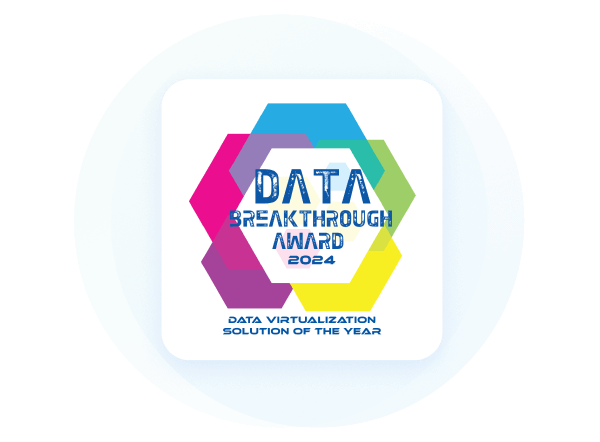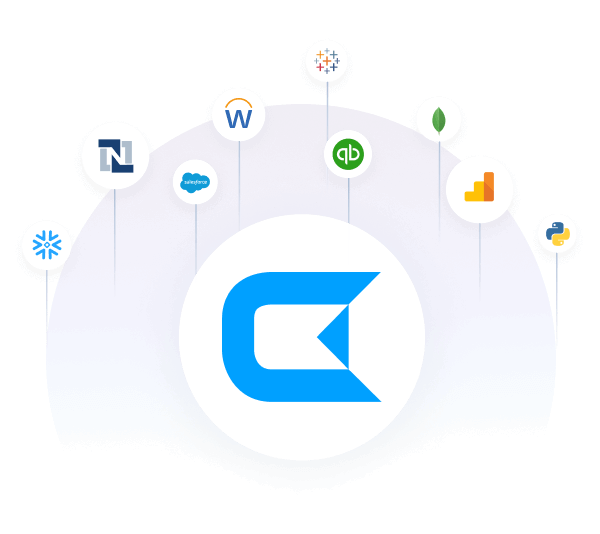Discover how a bimodal integration strategy can address the major data management challenges facing your organization today.
Get the Report →Natively Connect to SingleStore Data in PHP
The CData ODBC Driver for SingleStore enables you to create PHP applications on Linux/UNIX machines with connectivity to SingleStore data. Leverage the native support for ODBC in PHP.
Drop the CData ODBC Driver for SingleStore into your LAMP or WAMP stack to build SingleStore-connected Web applications. This article shows how to use PHP's ODBC built-in functions to connect to SingleStore data, execute queries, and output the results.
Using the CData ODBC Drivers on a UNIX/Linux Machine
The CData ODBC Drivers are supported in various Red Hat-based and Debian-based systems, including Ubuntu, Debian, RHEL, CentOS, and Fedora. There are also several libraries and packages that are required, many of which may be installed by default, depending on your system. For more information on the supported versions of Linux operating systems and the required libraries, please refer to the "Getting Started" section in the help documentation (installed and found online).
Installing the Driver Manager
Before installing the driver, check that your system has a driver manager. For this article, you will use unixODBC, a free and open source ODBC driver manager that is widely supported.
For Debian-based systems like Ubuntu, you can install unixODBC with the APT package manager:
$ sudo apt-get install unixodbc unixodbc-dev
For systems based on Red Hat Linux, you can install unixODBC with yum or dnf:
$ sudo yum install unixODBC unixODBC-devel
The unixODBC driver manager reads information about drivers from an odbcinst.ini file and about data sources from an odbc.ini file. You can determine the location of the configuration files on your system by entering the following command into a terminal:
$ odbcinst -j
The output of the command will display the locations of the configuration files for ODBC data sources and registered ODBC drivers. User data sources can only be accessed by the user account whose home folder the odbc.ini is located in. System data sources can be accessed by all users. Below is an example of the output of this command:
DRIVERS............: /etc/odbcinst.ini
SYSTEM DATA SOURCES: /etc/odbc.ini
FILE DATA SOURCES..: /etc/ODBCDataSources
USER DATA SOURCES..: /home/myuser/.odbc.ini
SQLULEN Size.......: 8
SQLLEN Size........: 8
SQLSETPOSIROW Size.: 8
Installing the Driver
You can download the driver in standard package formats: the Debian .deb package format or the .rpm file format. Once you have downloaded the file, you can install the driver from the terminal.
The driver installer registers the driver with unixODBC and creates a system DSN, which can be used later in any tools or applications that support ODBC connectivity.
For Debian-based systems like Ubuntu, run the following command with sudo or as root:
$ dpkg -i /path/to/package.deb
For Red Hat systems or other systems that support .rpms, run the following command with sudo or as root:
$ rpm -i /path/to/package.rpm
Once the driver is installed, you can list the registered drivers and defined data sources using the unixODBC driver manager:
List the Registered Driver(s)
$ odbcinst -q -d
CData ODBC Driver for SingleStore
...
List the Defined Data Source(s)
$ odbcinst -q -s
CData SingleStore Source
...
To use the CData ODBC Driver for SingleStore with unixODBC, ensure that the driver is configured to use UTF-16. To do so, edit the INI file for the driver (cdata.odbc.singlestore.ini), which can be found in the lib folder in the installation location (typically /opt/cdata/cdata-odbc-driver-for-singlestore), as follows:
cdata.odbc.singlestore.ini
...
[Driver]
DriverManagerEncoding = UTF-16
Modifying the DSN
The driver installation predefines a system DSN. You can modify the DSN by editing the system data sources file (/etc/odbc.ini) and defining the required connection properties. Additionally, you can create user-specific DSNs that will not require root access to modify in $HOME/.odbc.ini.
The following connection properties are required in order to connect to data.
- Server: The host name or IP of the server hosting the SingleStore database.
- Port: The port of the server hosting the SingleStore database.
- Database (Optional): The default database to connect to when connecting to the SingleStore Server. If this is not set, tables from all databases will be returned.
Connect Using Standard Authentication
To authenticate using standard authentication, set the following:
- User: The user which will be used to authenticate with the SingleStore server.
- Password: The password which will be used to authenticate with the SingleStore server.
Connect Using Integrated Security
As an alternative to providing the standard username and password, you can set IntegratedSecurity to True to authenticate trusted users to the server via Windows Authentication.
Connect Using SSL Authentication
You can leverage SSL authentication to connect to SingleStore data via a secure session. Configure the following connection properties to connect to data:
- SSLClientCert: Set this to the name of the certificate store for the client certificate. Used in the case of 2-way SSL, where truststore and keystore are kept on both the client and server machines.
- SSLClientCertPassword: If a client certificate store is password-protected, set this value to the store's password.
- SSLClientCertSubject: The subject of the TLS/SSL client certificate. Used to locate the certificate in the store.
- SSLClientCertType: The certificate type of the client store.
- SSLServerCert: The certificate to be accepted from the server.
Connect Using SSH Authentication
Using SSH, you can securely login to a remote machine. To access SingleStore data via SSH, configure the following connection properties:
- SSHClientCert: Set this to the name of the certificate store for the client certificate.
- SSHClientCertPassword: If a client certificate store is password-protected, set this value to the store's password.
- SSHClientCertSubject: The subject of the TLS/SSL client certificate. Used to locate the certificate in the store.
- SSHClientCertType: The certificate type of the client store.
- SSHPassword: The password that you use to authenticate with the SSH server.
- SSHPort: The port used for SSH operations.
- SSHServer: The SSH authentication server you are trying to authenticate against.
- SSHServerFingerPrint: The SSH Server fingerprint used for verification of the host you are connecting to.
- SSHUser: Set this to the username that you use to authenticate with the SSH server.
/etc/odbc.ini or $HOME/.odbc.ini
[CData SingleStore Source]
Driver = CData ODBC Driver for SingleStore
Description = My Description
User = myUser
Password = myPassword
Database = NorthWind
Server = myServer
Port = 3306
For specific information on using these configuration files, please refer to the help documentation (installed and found online).
Establish a Connection
Open the connection to SingleStore by calling the odbc_connect or odbc_pconnect methods. To close connections, use odbc_close or odbc_close_all.
$conn = odbc_connect("CData ODBC SingleStore Source","user","password");
Connections opened with odbc_connect are closed when the script ends. Connections opened with the odbc_pconnect method are still open after the script ends. This enables other scripts to share that connection when they connect with the same credentials. By sharing connections among your scripts, you can save system resources and queries execute faster.
$conn = odbc_pconnect("CData ODBC SingleStore Source","user","password");
...
odbc_close($conn); //persistent connection must be closed explicitly
Create Prepared Statements
Create prepared statements and parameterized queries with the odbc_prepare function.
$query = odbc_prepare($conn, "SELECT * FROM Orders WHERE ShipCountry = ?");
Execute Queries
Execute prepared statements with odbc_execute.
$conn = odbc_connect("CData ODBC SingleStore Source","user","password");
$query = odbc_prepare($conn, "SELECT * FROM Orders WHERE ShipCountry = ?");
$success = odbc_execute($query, array('USA'));
Execute nonparameterized queries with odbc_exec.
$conn = odbc_connect("CData ODBC SingleStore Source","user","password");
$query = odbc_exec($conn, "SELECT ShipName, ShipCity FROM Orders WHERE ShipCountry = 'USA'");
Process Results
Access a row in the result set as an array with the odbc_fetch_array function.
$conn = odbc_connect("CData ODBC SingleStore data Source","user","password");
$query = odbc_exec($conn, "SELECT ShipName, ShipCity FROM Orders WHERE ShipCountry = 'USA'");
while($row = odbc_fetch_array($query)){
echo $row["ShipName"] . "\n";
}
Display the result set in an HTML table with the odbc_result_all function.
$conn = odbc_connect("CData ODBC SingleStore data Source","user","password");
$query = odbc_prepare($conn, "SELECT * FROM Orders WHERE ShipCountry = ?");
$success = odbc_execute($query, array('USA'));
if($success)
odbc_result_all($query);
More Example Queries
You will find complete information on the SQL queries supported by the driver in the help documentation. The code examples above are SingleStore-specific adaptations of the PHP community documentation for all ODBC functions.






